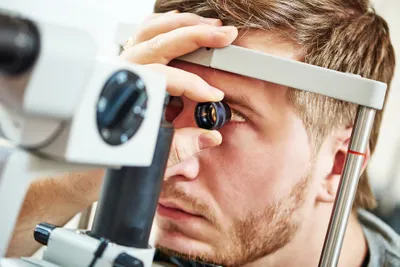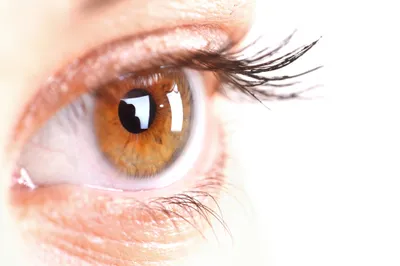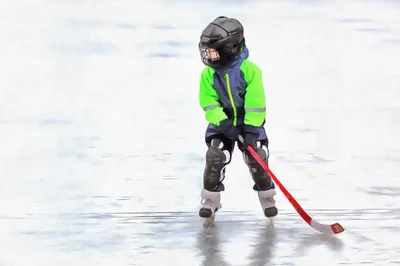It’s April again, which means another Sports Eye Safety Awareness Month is upon us. Whether you’re a professional athlete, the most amateur of sportsmen, or somewhere in between, playing sports is a great way to stay in shape. It’s also an excellent way to get together with friends and burn off some stress.
But many sports, and particularly the intense, hard-hitting varieties—such as hockey, basketball, and football—can pose significant dangers to your body. Of your most valuable body parts, your eyes may be the most vulnerable to injury. That’s why it’s so important to take special care with your eyes when playing. To keep your eyes safe, consider these eye safety tips…
1. Ditch the Day-to-Day Glasses
When playing sports for the first time, many people dismiss the idea of buying special protective lenses because they’re already wearing glasses. These days many daily use eye glasses are built using tough and long-lasting materials that can withstand the little knocks and bumps that accompany the usual workday and home life.
But that doesn’t make them much of a match for an intense game of hockey, volleyball, football or basketball. Regardless of what your day-to-day eye glasses are made of, it’s a bad idea to wear them to play professional sports. Goggles are a necessity, not only because they’re built specifically to protect your eyes, but also because having your normal eye glasses damaged could make it difficult to perform routine but necessary daily tasks, like carrying out your job or driving.
2. Be Sun-Ready
Some of the most popular sports are played outdoors in the bright lights and heat of summer time. But that poses a couple of significant dangers: for one, your skin may be exposed to dangerous ultra violet light. Second, and perhaps more important, your eyes are exposed to the sun’s rays. Over time, that could have a significant, and very negative, impact on your vision.
To protect your eyes from the sun, be sure to use appropriate eye wear. That means using sunglasses that are certified to protect your eyes from ultra violet light. So, if you’re a big fan of outdoor summer sports like tennis, baseball, or basketball, don’t forget to cover up this year.
3. Customize your Eyewear
It’s all well and good to buy protective eyewear for one sport, but that may not make it appropriate for something completely different. For example, the eyewear you use to keep your eyes safe in a game of floor hockey or basketball may not do a whole lot against a line drive in a game of baseball.
That’s why it’s important to customize your eyewear to the specific sport you’re playing. It’s also crucial that you think about the amount of mobility in each sport and take action to accommodate your eyewear. For example, in a less mobile sport—such as baseball—you may not need to worry about having your eyewear slip and fall, but this will be a significant concern for those playing basketball, tennis, hockey, or football.
4. See your Eye Doctor
Whether you’re playing sports or not, it’s important to see your eye doctors—including your optometrist and ophthalmologist—on a regular basis. But making these visits becomes particularly important if you’re engaging in physical activities that pose a risk to your eyes in any way, as eye specialists are trained to identify problems early and help you take the appropriate steps afterwards.
Visiting an eye specialist is especially important if you sustain any kind of eye injury. Even if the issue seems minor, don’t hesitate to make an appointment to have things checked out. The last thing you want to do is ignore an issue that threatens your vision. As with many other health matters, early diagnosis and treatment are often key when it comes to eye injuries.
5. Explore Laser Eye Surgery
Let’s get this out of the way: laser eye surgery isn’t for everyone. Some people have pre-existing eye conditions, from astigmatism to dry eyes, that will prevent them from having the surgery at all. Others may not like the idea of having someone, even an experienced ophthalmologist, poke around in their eyes.
But laser eye surgery can have huge benefits, if you’re an appropriate candidate. It has the potential to eliminate your need for prescription eye glasses or goggles, allowing you to purchase much more affordable and more widely available protective eye wear. That said, just because you no longer need prescription eyewear, that doesn’t mean you should protect your eyes while playing sports.
6. Forget the Pros
Many amateur athletes—even those with no interest in ever playing professionally—often emulate the pros when it comes to how they behave and what they wear. But the latter can be dangerous, particularly when it comes to sports where professional athletes may be wearing less protective equipment than they should.
For example, pro hockey players typically ditch the full face mask in favor of a smaller visor that offers only limited protection for the eyes. Meanwhile, in basketball, few professionals wear any eye protection at all. But that’s not necessarily responsible or even smart, particularly for an amateur athlete who can’t count on having the healthcare provided to a professional. So, dismiss what the pros are doing in your sport and wear the right eye protection for you.









